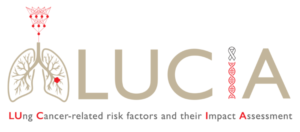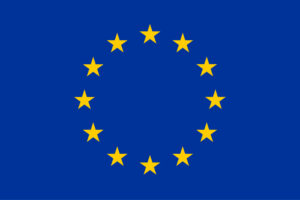
When drafting and approving the current EU Framework for Research and Innovation, Horizon Europe, the European Commission introduced a new funding stream: 5 missions to find “concrete solutions to some of our greatest challenges,” and deliver tangible results by 2030.
One of these lines is the Cancer Mission, which, in general terms, seeks to extend the life expectancy of cancer patients, achieve a higher quality of life and consolidate mechanisms to prevent or delay the onset of the disease. This Mission believes that, in order to achieve effective interventions in the pillars of prevention, diagnosis and treatment, and to improve the quality of life of people exposed to cancer, a better understanding of the disease is necessary. Therefore, a better understanding of the factors and mechanisms that cause cancer is the foundation on which the three pillars of prevention, diagnosis and treatment are based.
In the case of lung cancer (LC), early detection can help reduce mortality by shifting the focus away from the late-stage, largely incurable profile of the disease to the early stage when more options are available to improve patients’ outcomes and quality of life. However, current methods, like Low-Dose Computed Tomography (LDCT), are not administered with sufficient precision. This is due in part to an incomplete picture of the risk factors and cellular processes associated with the onset and prognosis of lung cancer. While the high-risk link between tobacco smoking and LC has long been established, we know less about other contributing factors connected to increasing age, indoor and outdoor pollutants, multi-morbidities, genes, and differences in biological pathways. Therefore, the main goal of LUCIA is to develop and validate a new set of tools to discover and understand the risk factors that contribute to the development of LC.
The tools to developed in LUCIA will allow us to better understand 3 aspects of the development of the disease:
The approach of LUCIA will involve:
LUCIA’s 22-member consortium is led by Technion University (Israel). It includes partners from across Europe specialising in lung cancer research, diagnostic technologies, AI ethics and legal frameworks, and EU policy. In addition, four implementing hospitals from Belgium (Walloon region), Latvia, and Spain (Andalusia and Basque regions), will be involved.
From Servicio Andaluz de Salud (SAS), three different teams from two centres in the province of Seville will be involved in LUCIA:
1. The Innovation & Data Analysis Unit of Hospital Universitario Virgen Macarena (HUVM). Lead by Alberto Moreno Conde, this unit will carry out these tasks:
2. The Medical Oncology Unit of Hospital Universitario Virgen Macarena (HUVM). Lead by David Vicente Baz, this unit will carry out these tasks::
3. Research Unit of Distrito Sanitario Aljarafe-Sevilla Norte. Lead by Luis Gabriel Luque Romero, this unit will cary out these tasks:
From 2023 to 2027, LUCIA will work to contribute to the EU Mission Cancer along with other projects and researchers across Europe. We will focus on the risks associated with developing Lung Cancer and its subtypes, as well as the methods best suited for prompt diagnoses.
Be sure to follow the project on LinkedIn, Twitter, and Instagram to learn more about our research and findings over the next four years!
 This project has received funding from the European Union’s Horizon Europe research and innovation programme under grant agreement no. 101096473.
This project has received funding from the European Union’s Horizon Europe research and innovation programme under grant agreement no. 101096473.
